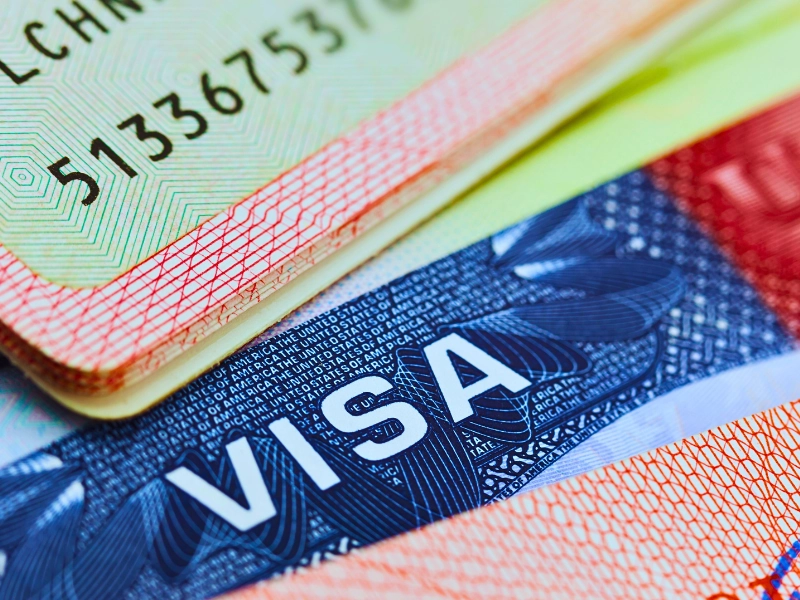While it’s possible to face deportation for working without a visa, immigration officials may forgive unauthorized work if you are in the process of applying for a marriage visa, and you are the spouse of a U.S. citizen. Knowing the risks involved in working while unauthorized could help you determine your rights and the repercussions that might apply to your case.

For help with an immigration case, including avoiding removal and deportation, call Cho Immigration Law at 312-853-3088 to speak with an experienced Chicago immigration attorney.
What Happens if You’re Caught Working Without a Visa in the U.S.?
According to a study from Pew Research Center, in a recent year, 22.2 million immigrants lawfully worked in the U.S., with the number of working-age immigrants expected to rise by another 18 million by 2035. However, many workers in the U.S. are unauthorized, although this doesn’t necessarily mean that those individuals could face legal consequences if the government discovers they have performed unauthorized work.
If U.S. Citizenship and Immigration Services (USCIS) discovers that you have been working without an Employment Authorization Document (EAD) and a visa, you could face removal and deportation without taking the proper steps.
Generally, you may be able to receive forgiveness from USCIS if you were applying for a marriage visa while engaged to a U.S. citizen, but you must meet the requirements for eligibility to work in the United States.
How Immigration Authorities Handle Unauthorized Employment
Typically, it is illegal for immigrants and non-immigrants to work in the U.S. without proper authorization. The following are instances when the U.S. government considers work unauthorized:
- You are working without a work visa, such as an L-1 or H-1B visa
- You perform work that is not within the scope of employment for the work related to your visa, such as working for another employer at the same time as the one that sponsored your visa
- You perform work while in the U.S. with a visa that doesn’t permit work, such as a B-2 tourist visa or a B-1 business visitor visa
- You work outside authorized employment opportunities as an international student in the U.S.
- You perform volunteer work that paid workers normally perform
- You engage in freelancing work that is unrelated to your work visa
If USCIS discovers any of these instances, they may conduct an investigation into the unauthorized worker. The resulting actions could include visa application denial, a Notice to Appear in court, and, ultimately, removal and deportation. Depending on the circumstances, USCIS might also prevent unauthorized workers from requesting an extended stay in the U.S. or bar them from going through naturalization to become U.S. citizens.
At the same time, it’s important not to lie to USCIS. When going through the application process or otherwise completing requested paperwork, it’s crucial to disclose unauthorized work. There may be options available to mitigate deportation risks for undocumented workers. If the government discovers that you have performed unauthorized work and you worry that you face removal and deportation as a result, it’s best to speak with an immigration lawyer for visa issues.
What About Investments, Stocks, and Bonds?
While many opportunities to earn income in the U.S. are limited for people without work authorization, there are exceptions. For instance, foreign nationals in the U.S. may be able to make revolving and passive investments in stocks or bonds, as long as they are not buying or selling securities for a job or business.
When to Contact an Immigration Lawyer if You’re at Risk of Deportation
Working without a visa in 2025 is particularly risky, as the Trump administration continues to engage U.S. Immigration and Customs Enforcement (ICE) to crack down on illegal immigration in the U.S. As a result, many individuals and employers are undergoing deeper investigations to identify instances of unauthorized work and undocumented immigration.
To avoid consequences related to unauthorized work, reach out to an experienced employment immigration lawyer in Chicago. An attorney could inform you of your rights as an immigrant or non-immigrant in the U.S., work to protect them, and defend you if you face deportation after performing unauthorized work.
There are other situations when an immigration attorney might be able to assist you as well, such as if you get fired on a work visa and want guidance on finding other work within the scope of your visa. You may also be able to decide on alternatives to the H-1B visa for workers or other types of visas for which you may not qualify.
In the event the U.S. government discovers that you have performed unauthorized work, there may still be options available to you when it comes to living and working in the U.S. Having a lawyer could help you identify those opportunities and take the necessary steps to prevent deportation and other legal issues.
To find out what an experienced immigration attorney might be able to do for you, Cho Immigration Law is here for you. Contact us today to consult our legal team and discuss your needs.



